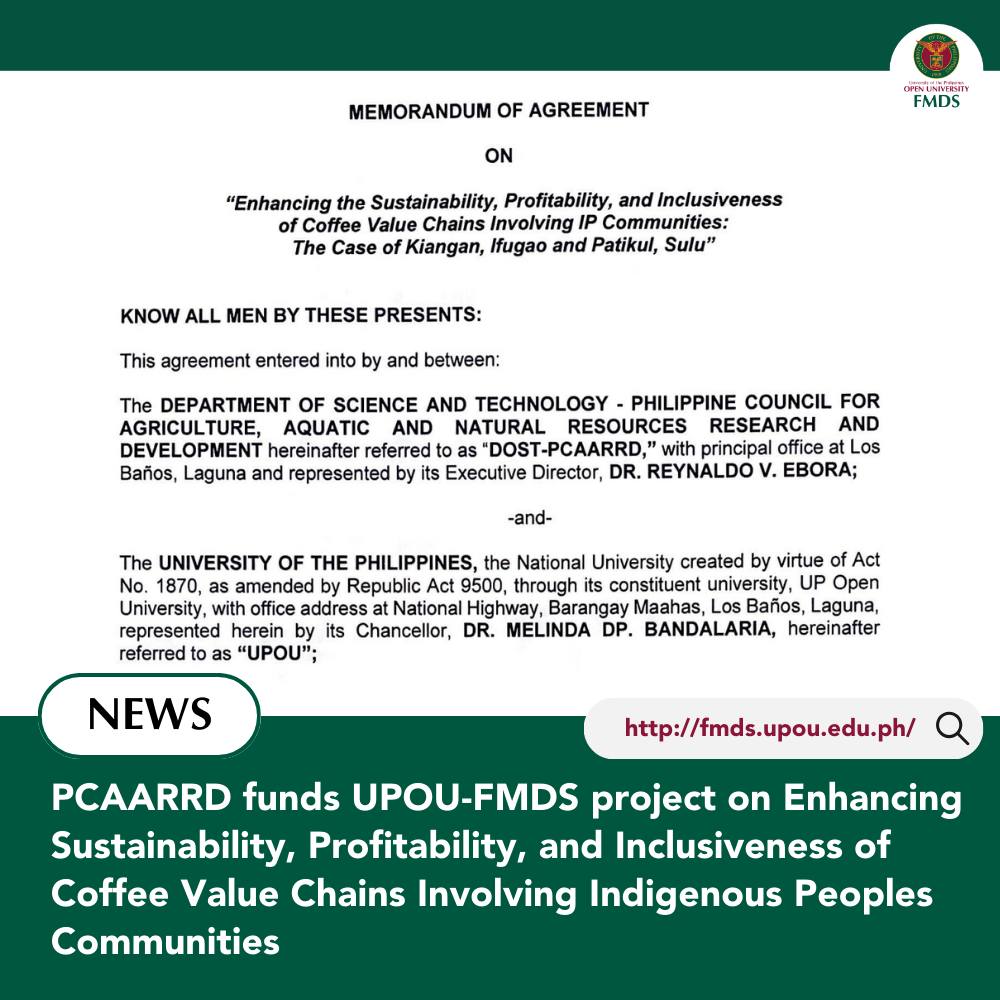
The University of the Philippines Open University-Faculty of Management and Development Studies (UPOU-FMDS) signed the Memorandum of Agreement with the Philippine Council for Agriculture, Aquatic and Natural Resources Research and Development (PCAARRD) for a new project titled “Enhancing Sustainability, Profitability, and Inclusiveness of Coffee Value Chains Involving IP Communities: The Case of Kiangan, Ifugao and Patikul, Sulu.” It was signed by the Executive Director of PCAARRD, Dr. Reynaldo V. Ebora, and UPOU Chancellor, Dr. Melinda dP. Bandalaria, with the Director of Socio-Economics Research Division of PCAARRD, Dr. Ernesto O. Brown, and Project Leader from UPOU, Dr. Joane V. Serrano as witnesses.
The IP Coffee Project is funded by the Department of Science and Technology – Philippine Council for Agriculture, Aquatic and Natural Resources Research and Development (DOST-PCAARRD), and is being implemented by UPOU in partnership with the University of the Philippines Los Baños (UPLB), Ifugao State University (IFSU), and Mindanao State University – Sulu (MSU-Sulu). It aims to enhance the sustainability, profitability, and inclusiveness of the coffee value chain of indigenous communities in the Philippines (Kiangan, Ifugao and Patikul, Sulu). By strengthening their participation and competitiveness, these communities can increase economic opportunities like employment, income generation, profitability, and marketability of local coffee varieties.
The core project team is also composed of Dr. Sherry B. Marasigan, co-project leader from the Agricultural System Institute, College of Agriculture and Food Sciences, UPLB and Ms. Mary Grace Q. Campollo, project technical assistant.
The goal is to develop sustainable indigenous coffee-producing communities for livelihood improvement and national development. Not only it supports their economic empowerment but also provides means for preservation of their cultural identity and traditional knowledge. This inclusive approach recognizes the significant role indigenous communities can play in the industry, from cultivation and harvesting to processing and marketing. The two-year project implementation requires the project team to produce journal articles in Scopus-indexed journals, policy paper on coffee value chain, indigenous people-based intervention model, establish linkages, and recommend policy for the improvement of coffee value chain in two project sites: Kiangan, Ifugao and Patikul, Sulu.
Written by Mary Grace Campollo ♦ Edited by Larry N. Cruz ♦ Crossposted from FMDS: https://fmds.upou.edu.ph/archives/news-and-events/7615/








